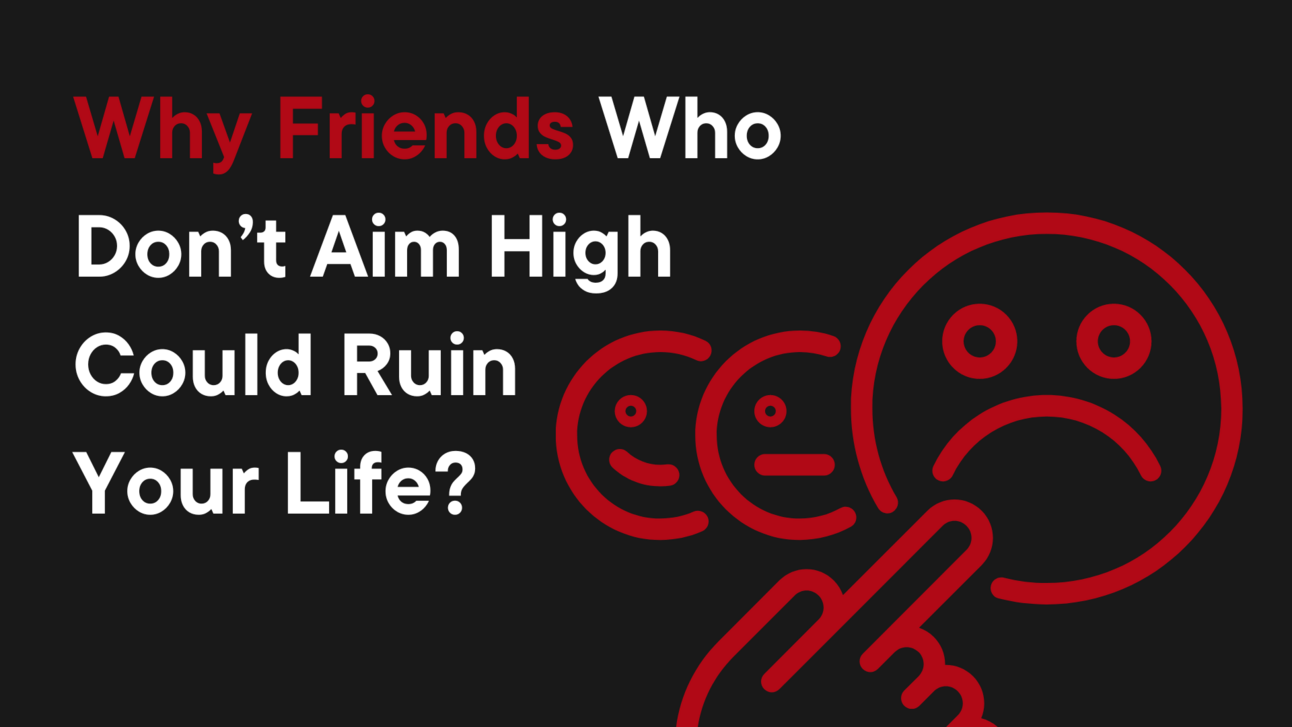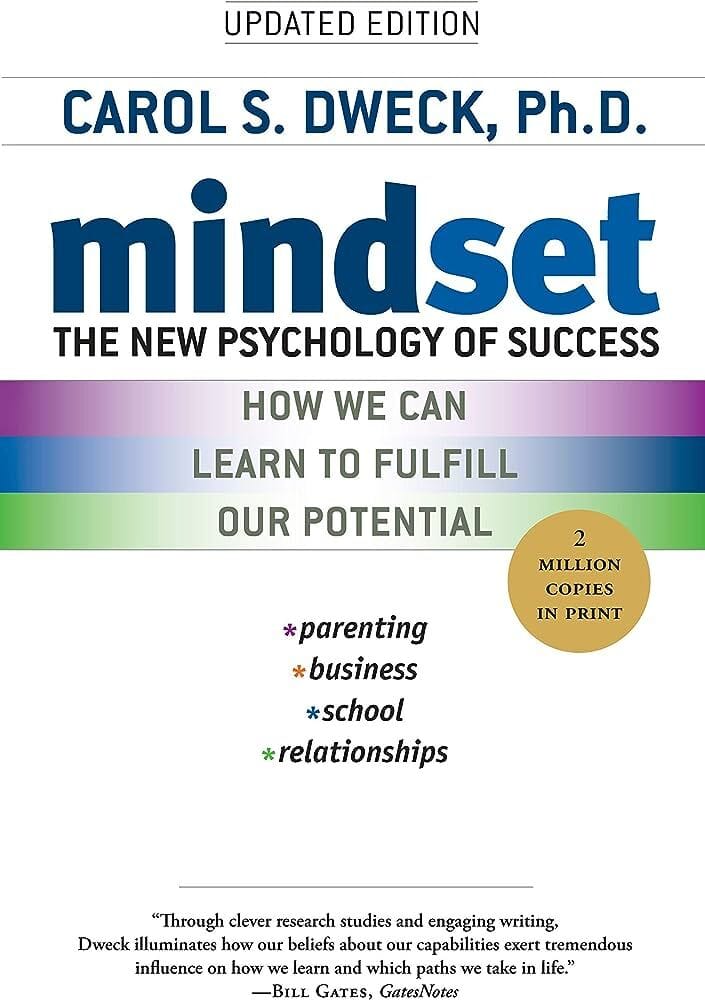- Founders Pulse
- Posts
- Why Friends Who Don't Aim High Could Ruin Your Life
Why Friends Who Don't Aim High Could Ruin Your Life
It's surprisingly easy to adopt wrong mindset over time

Hey, new here? Welcome! 👋🏼
Before we take-off, there’s one thing you should do:
Join ambitious people who want to learn about human nature by subscribing here.
Welcome to RelUp, we help you understand people better.
❓Did You Know:
If a friend becomes obese, your odds of gaining weight jump by 45%.
People with a fixed mindset often avoid effort, thinking hard work means they lack talent.
The beliefs and attitudes of others can deeply influence your journey and viewpoint.
Fascinating, right? Dive into the article to learn more...
When someone faces failure in life, the instinct is often to blame someone, although in most cases, the responsibility ultimately lies with oneself. While it's true that various factors can influence our success in life, the final decisions typically rest with us.
I have a clear memory of a time when I was part of a circle of friends who lived paycheck to paycheck, earning minimal wages, and spent their Fridays and weekends predominantly on drinking.
Regrettably, I was no different – I was fully immersed in that repetitive routine without understanding the long-term consequences of my choices.
Back then, I failed to recognize that my future significantly lacked any purpose, intention or plans, because such a perspective was the norm among my friends.
✍️You are the average of the five people you spend the most time with.
Insights From a Study
Research on social influence was conducted by Nicholas Christakis and James Fowler.
So, they began examining the data collected to observe how the influence of family members and friends impacts a relatively straightforward and objective factor: obesity.
Their findings revealed that if one of your friends becomes obese, your chances of gaining weight increase by 45 percent over the next two to four years compared to random chance.
Why would not be the same case with beliefs and perspective?
💡The beliefs, attitudes, and ambitions we hold can be significantly shaped by the people close to us, such as friends and family.
It's important to explore why being around individuals who lack ambition can have more negative consequences than we might initially understand.
Dangers of Limiting Beliefs
When your friends are content with mediocrity, it's surprisingly easy to adopt that mindset over time.
In the book,"Mindset: The New Psychology of Success", author Carol S. Dweck explores the concepts of fixed and growth mindsets and how they impact individuals' beliefs, behaviors, and success.

Author highlights that individuals with a fixed mindset often shy away from effort because they associate hard work with a lack of natural talent. They might also feel threatened by the success of others, interpreting it as a sign of their own inadequacy. This mindset can impede personal growth, learning, and resilience.
On the other side you have that concept of the growth mindset, where everyone can change and grow through application and experience.
💡This growth mindset is based on the belief that your basic qualities are things you can cultivate through your efforts.
A person's true potential is both unknown and unknowable, making it impossible to predict what can be achieved with years of dedication, hard work, and training.
The passion for pushing oneself and persevering, especially when faced with difficulties, is the driving force that propels personal growth and development.

Here are some signs to help you recognize a fixed mindset:
Defensiveness: Tendency to protect oneself from perceived threats, criticism, or negative feedback is often the one thing preventing open-mindedness and self-reflection.
Avoidance of Challenges: Staying within one's comfort zone can limit personal and professional growth, as overcoming challenges often leads to new skills, experiences, and opportunities.
Attributing Absence of Talent to Avoiding Effort: This concept is a perfect example of the fixed mindset. Individuals believe that their abilities are static and cannot be developed through effort, so why to bother?
Negative Self-Talk: Negative self-talk refers to the habit of engaging in critical or pessimistic thoughts about oneself which can erode self-esteem and contribute to feelings of anxiety and depression.
Our mind is remarkable, and consistent discouraging comments can have the potential to lead us into believing that the idea is foolish, or that failure is inevitable, ultimately leading us to give up. That is why it's important to be mindful of the words and phrases we use when talking to ourselves and others.
You Will Not Get Encouragement
I remember when I hung out with less ambitious friends. They didn't support my ideas or encourage growth. Our talks were mostly about games and parties. They didn't inspire me to work on myself and I even found myself slipping into negative self-talk. Over time my thoughts and words started reframing but in negative sense.
When someone mentioned going to the gym, they would mock it. This was just one example where their mockery revealed their lack of interest in personal growth and reflected their own priorities and mindset.
💡I often think about how different life might have been if I stayed where I was without acknowledging and embracing the importance of my growth and well-being.
Would I have built the business I have today? Countless opportunities could have been missed. Many of these opportunities would've shifted my perspective and made me believe that hard things are possible for anyone.
You can choose your mindset. Mindsets are beliefs—powerful, yes, but they're just thoughts. The best part? You can change them anytime you want.
Choosing Your Circle Wisely
Consider diversifying your social circle. Engage with individuals who exhibit a growth mindset—those who believe in the potential for development through effort and learning.
💡 With ambitious friends, you get encouragement. They make you believe in being better. They help you improve your ideas.
Surrounding yourself with such people can inspire you to take smart risks, pursue ambitious goals, and seize opportunities that a fixed mindset might otherwise prevent you from exploring.
Remember, the beliefs and attitudes of those around you can profoundly impact your own path, so choosing a supportive and growth-oriented environment is key to unlocking your full potential.
💡Little Lessons Learned💡
The beliefs, attitudes, and ambitions we hold can be significantly shaped by the people close to us, such as friends and family.
This growth mindset is based on the belief that your basic qualities are things you can cultivate through your efforts.
I often think about how different life might have been if I stayed where I was without acknowledging and embracing the importance of my growth and well-being.
With ambitious friends, you get encouragement. They make you believe in being better. They help you improve your ideas.
📕What Should You Read Next?👀
Mindset: The New Psychology of Success by Carol S. Dweck
Stanford psychologist Carol S. Dweck, Ph.D., highlights the power of mindset on success.
Differentiates between fixed mindset (abilities are static) and growth mindset (abilities can evolve).
This edition introduces the "false growth mindset."
Expands the concept to group and organizational cultures.
Emphasizes that the right mindset can inspire transformation in both individuals and groups.
Thanks for diving in!
Become part of a community eager to unravel the mysteries of human nature. Join us!